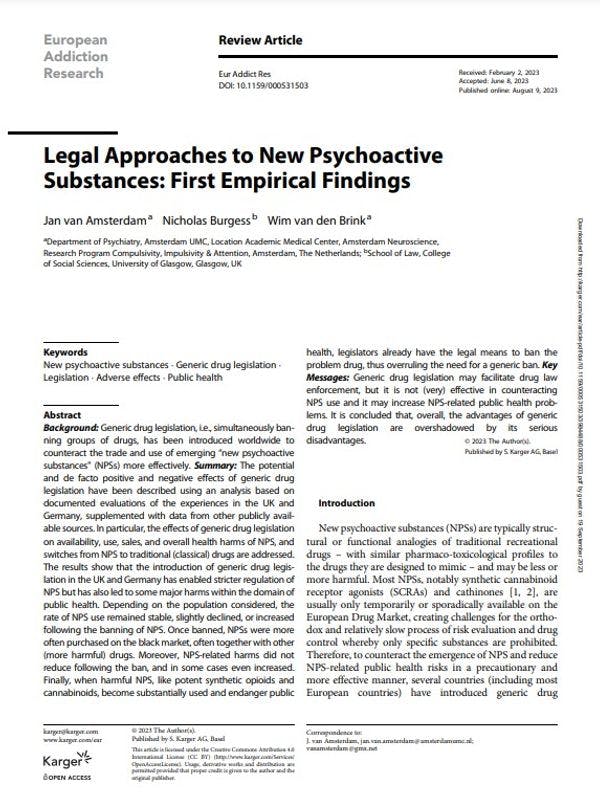Approches juridiques en matière de nouvelles substances psychoactives : Premiers résultats empiriques
Van Amsterdam et al. présentent la première série de résultats empiriques relatifs à la législation sur les drogues alternatives génériques au Royaume-Uni et en Allemagne, révélant qu'elle est largement inefficace pour contrer l'usage de nouvelles substances psychoactives et qu'elle entraîne des problèmes de santé publique accrus. Pour en savoir plus, en anglais, veuillez lire les informations ci-dessous.
Background: Generic drug legislation, i.e., simultaneously banning groups of drugs, has been introduced worldwide to counteract the trade and use of emerging “new psychoactive substances” (NPSs) more effectively.
Summary: The potential and de facto positive and negative effects of generic drug legislation have been described using an analysis based on documented evaluations of the experiences in the UK and Germany, supplemented with data from other publicly available sources. In particular, the effects of generic drug legislation on availability, use, sales, and overall health harms of NPS, and switches from NPS to traditional (classical) drugs are addressed. The results show that the introduction of generic drug legislation in the UK and Germany has enabled stricter regulation of NPS but has also led to some major harms within the domain of public health. Depending on the population considered, the rate of NPS use remained stable, slightly declined, or increased following the banning of NPS. Once banned, NPSs were more often purchased on the black market, often together with other (more harmful) drugs. Moreover, NPS-related harms did not reduce following the ban, and in some cases even increased. Finally, when harmful NPS, like potent synthetic opioids and cannabinoids, become substantially used and endanger public health, legislators already have the legal means to ban the problem drug, thus overruling the need for a generic ban.
Key Messages: Generic drug legislation may facilitate drug law enforcement, but it is not (very) effective in counteracting NPS use and it may increase NPS-related public health problems. It is concluded that, overall, the advantages of generic drug legislation are overshadowed by its serious disadvantages.
